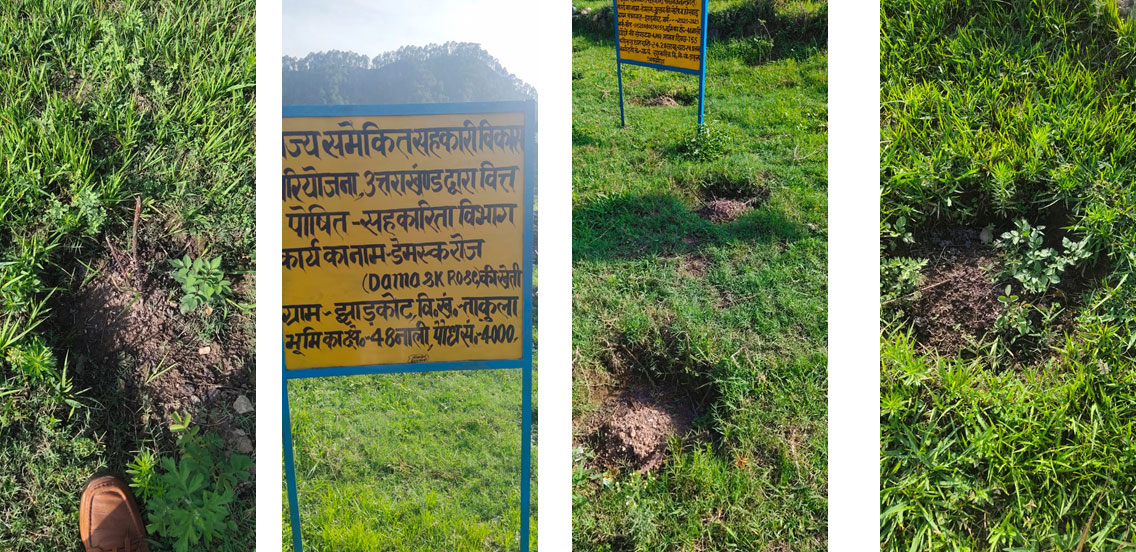Damask Rose
The state of Uttarakhand is a home of thousands of plant species besides being a key producer of major agriculture and horticulture crops. It offers more than 300 species having medicinal and aromatic properties. Medicinal and Aromatic Plants are considered as a major segment of the state’s economy, which provides necessary raw material for industries like pharmaceutical, drugs, cosmetics, fragrance, flavor etc. In various modern medicines, plants-based compositions are used because of easy availability, low prices, ecofriendly, least side effects and the long-lasting impacts. Thus, aromatic plants segment comprises an important source of income for a large number of farmers in the state.
Despite having the resources in abundance, the rural economy of Uttarakhand is facing several challenges such as disaggregated farming, traditional methods of cultivation, lack of value-added products with limited access to organized markets etc. Absence of well-developed value chains of the commodities results in low-income realization at farm gate. Particularly in MAP (Medicinal & Aromatic Plants) segment, various studies undertaken in the states have revealed that there are multiple issues in the existing value chain and therefore farmers are not able to get the remunerative prices. The issues include high cost of production, poor quality of inputs and delay in supply, lack of transparency in the trade, high processing costs, lack of information regarding loan and govt. schemes etc.
A concerted effort is required to address the constraints of farming in hilly areas and to boost the farming economy of the state in general and the local farmers in particular. One such effort is made under Uttarakhand Cooperative Development Project (UKCDP) of cultivating Damask Rose.
Damask Rose is one of the key interventions of the project. The envisaged objective is to increase the market accessibility and value addition of the Damask Rose products. By supporting the increase in cultivation and processing, operated under Collective Cooperative Farming (CCF), UKCDP provides immense opportunities for social and economic growth to the farmers of the state. This will also generate employment locally and promote tourism in the respective clusters.
Objectives of the project
- Value Chain Development: Strengthening/development of Damask Rose value chain and resolving the existing issues in the value chain.
- Farmer’s involvement: Involving the farmers in the cultivation process and connecting the farmers with a remunerative source of income through plantation, processing, and marketing of Damask Rose
- Tourism Development: Developing the valley as Damask Rose Valley and promoting tourism.
- Employment Generation: Through generating alternative sources of income like Damask Rose value chain development and tourism development in the region.
- Reduction in migration: The development of the valley in such a way as to generate employment and provide additional income to farmers will result in a reduction of migration in search of employment and methods of income generation.
BENEFITS TO FARMERS:
- Productivity enhancement at commercial scale through collective efforts.
- Farmers will have easy access to advanced farming techniques, quality inputs, quality fertilizers, training, collective resources, and capacity development programs for productivity enhancement.
- Farmers will have a great opportunity to avail benefits of better farming techniques, business transparency, and local marketplace of their farm produce.
- Farmer will have easy access to the financial services through cooperative society to meet their day-to-day expenses.
